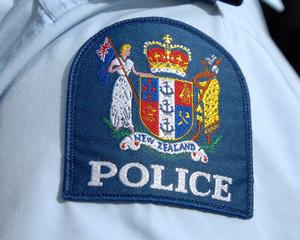Education, tougher sentences and voluntary accords were mooted by the ministry in a report released yesterday.
The report was requested by Justice Minister Simon Power to stimulate debate after comments from leading judges that knife possession was becoming a part of youth culture in New Zealand and it might be time for Parliament to reconsider laws around the matter.
The report said police data showed apprehension and prosecution rates for knife possession under the Summary Offences Act had remained relatively stable in the past decade.
But the number of people apprehended for offences involving knives and offensive weapons under the more serious Crimes Act had increased significantly between 1999 and 2008. It was estimated 19% of the latter incidents involved knives.
The ministry suggested increasing the penalty for possessing an offensive weapon would be one way of fixing the problem.
It also said educating school pupils about the danger of carrying knives was more likely to be effective than advertising campaigns.
But Otago Secondary Principals Association chairman Kevin McSweeney said talking about such matters in schools could do the reverse of what was intended. It could put ideas in people's heads instead, especially if programmes were not carefully designed and targeted at the right level.
He was not aware of any issues with pupils and knives in Otago schools.
"There are a lot bigger problems we need to be focusing on than that."
The ministry also suggested initially trying to limit access to knives by young people through a voluntary accord involving retailers, police and local authorities in areas where knife crime was a problem.
Hunting and sports goods store manager Howard Halliday, of Centrefire McCarthys Stream and Field Store, said he was cynical about that idea, mainly because it was so ill-defined and seemed rushed.
He said many young people bought knives from the store, mainly for hunting.
He was unsure how an accord to stop selling knives to young people would help, given knives were widely available and used for legitimate purposes, even by young people.
The report said Britain had introduced knife-crime reforms after a series of high-profile incidents in 2007, but it was too early to tell whether they had been effective.
Banning the sale of knives to people aged under 18 seemed to have had little or no effect on public safety in Britain.
The officer in charge of Dunedin's front-line police, Inspector Alastair Dickie, said Dunedin police were always on the lookout for knives.
All officers now wore stab-resistant body armour after a national spike in reported knife attacks on police officers several years ago.
But he had not noticed any change in incidents involving knives in Dunedin.
Dunedin Central Police Station exhibits officer Steve Bell said he received about one seized knife as evidence each week. The knives were mostly from domestic incidents or discovered during vehicle searches.
The knives ranged from craft knives, to pocket knives, flick knives and domestic kitchen knives, to hand-made machetes.
Mr Power said he was considering all options presented.
"It's timely we have a debate on knife possession to ensure knife crime does not escalate.
"I'm very keen to hear what the public thinks about these options and will be monitoring the debate closely."
Mr Power said he planned to make decisions in time to present to Cabinet within six to eight weeks.






